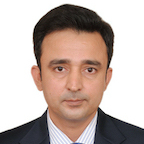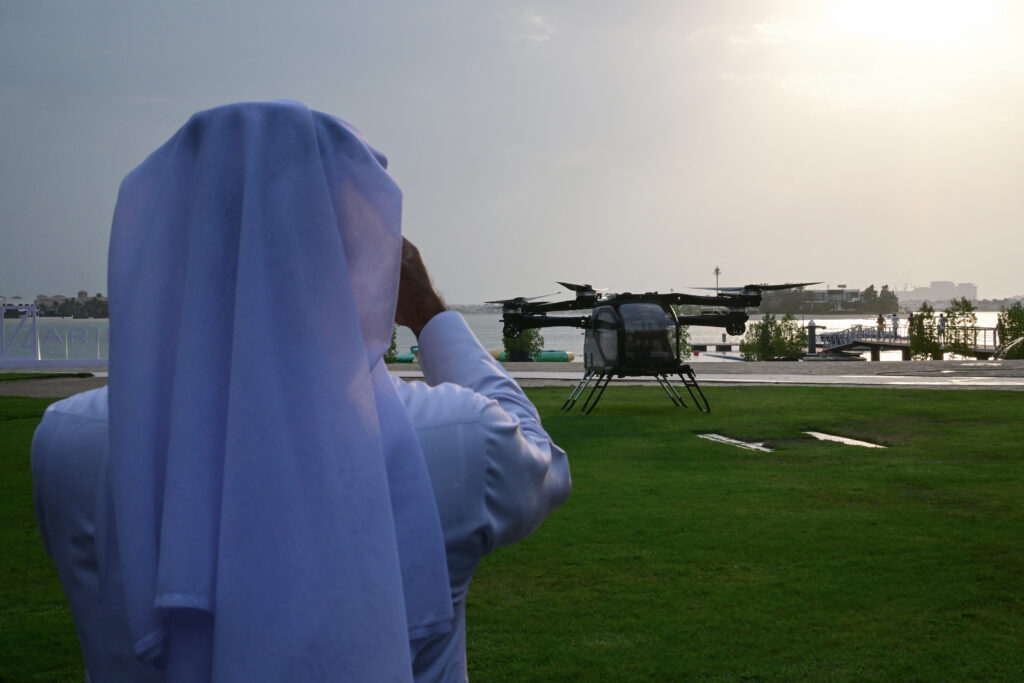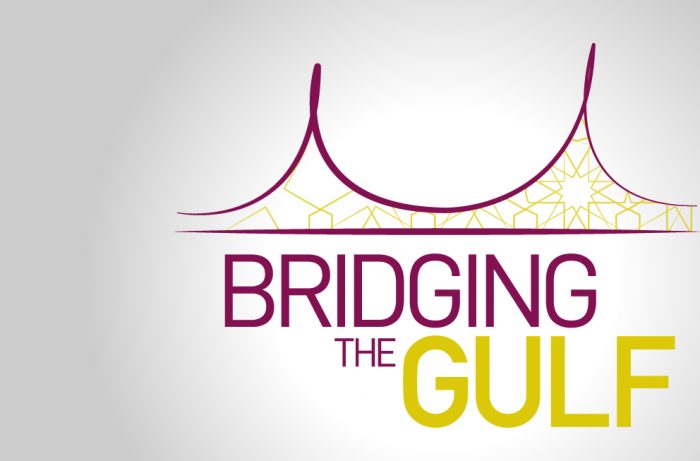
- 30 Sep 2020
Iran–China Relations: Separating Fact from Fiction
Abstract
The leaking in recent months of an alleged 25-year economic and military cooperation agreement between China and Iran has sparked intense debate among Western and Middle Eastern policymakers, pundits and journalists. If indeed signed, the agreement would significantly alter the balance of power in the Middle East, potentially draw China into the Saudi–Iranian conflict, and add one more dimension to tension between the United States and China. The impact of a signed agreement would be magnified by the likely failure of US attempts to persuade the United Nations Security Council to extend an arms embargo that prevents Iran from acquiring conventional weapons.
Discussion about the alleged draft agreement inevitably involves debate about China’s evolving Middle East policy. Broadly, two camps have emerged in the debate about what is real and what is shadow boxing in reports about the agreement. One school of thought takes the reported draft at face value and focuses on what it would mean for the Middle East as a region as well as individual Middle Eastern states. The other school sees the leaking of the alleged draft as a tactic employed by Iran and China in a bid to advance their separate objectives. Middle East Institute scholars James M Dorsey and Asif Shuja will discuss the two different camps. In doing so, they will provide a basis for discussion of Iran’s and China’s perspectives on creating a regional security architecture in the region that could reduce tension and help ensure that regional conflicts do not spin out of control.
Join us on Zoom on 30 September at 4pm (SGT). All are welcome to participate. An e-invite will be sent to you closer to the event date.
This event is free, however, registration is compulsory.
Image caption: Chinese Foreign Minister Wang Yi shakes hands with Iranian Foreign Minister Mohammad Javad Zarif during their meeting at the Diaoyutai State Guest House on 31 December 2019 in Beijing, China. Photo: Noel Celis/Pool/AFP.
Listen to the full event here:
Watch the full event here:
Read the Summary of Event Proceedings:
By Tan Feng Qin
Research Associate, Middle East Institute, National University of Singapore
In this talk, Dr James M Dorsey and Dr Asif Shuja, both senior research fellows at the Middle East Institute (MEI), National University of Singapore, addressed the facts and controversies surrounding a purported draft of a 25-year Comprehensive Strategic Partnership (CSP) between Iran and China.
A Three-dimensional Account of Iran–China Relations
Dr Shuja began by seeking to explicate the exact nature of Iran–China relations. Noting that China had vetoed America’s proposal in the United Nations Security Council (UNSC) to indefinitely extend the UN conventional arms embargo against Iran, he asserted that China was explicitly siding with Iran in doing so.
Dr Shuja argued that a consideration of three key points would provide a three-dimensional picture of Iran’s relationship with China. First, it is important to note that reports on an 18-page document in circulation purporting to be the Iranian draft of a proposed 25-year CSP between Iran and China cite figures and suppositions absent in the actual Persian document itself. For instance, the figures sometimes given of US$280 billion of Chinese investment in oil and energy, and of US$ 120 billion in infrastructure investment, do not exist in the document itself.
Instead, the details that do exist in the document point to a deep strategic relationship between Iran and China, and are an enlarged and enhanced form of a previous memorandum of understanding (MOU) between Iran and China, which was the product of two reciprocal visits immediately after the Iran nuclear deal by the presidents of China and Iran.
Dr Shuja identified an article published on 3 September 2019 in the Petroleum Economist as the source of the controversy, and of the figures cited in circulating reports on the purported CSP that had no basis in fact, such as those of 5,000 Chinese soldiers to be stationed in Iran. He notes that the author of the article is not an Iranian, and the publication itself is owned by an investment businessman in Texas.
Second, Dr Shuja pointed out that much of the discussion of the purported draft is taking place in the context of the expiring UN conventional arms embargo, linked to the larger issue of Iran’s international relations, including the implications of a deepening relationship with China, on Iran’s relations and enmity with the US.
Third, Iran’s next presidential elections will occur on 18 June 2021. President Hassan Rouhani’s government is facing substantial challenges, and Dr Shuja noted that it is former Iranian President Mahmoud Ahmadinejad who raised concerns in Iran about Iran’s relations with China, without directly alluding to the 18-page document. He argued that Mr Ahmadinejad is eyeing both the presidency, and perhaps also the supreme leadership, and as such, is seeking to discredit the Rouhani government. At the same time, Dr Shuja reminded us that we do not know for sure if the document is authentic, or if it was deliberately leaked.
Dr Shuja concluded by arguing that the real nature of the Iran–China relationship can be understood by looking at the evolution of their relationship in different stages from 2006 onwards. He noted the trade imbalance in this evolving relationship: China is Iran’s largest trade partner, but Iran is a far less significant trade partner for China. This explains Iran’s enthusiasm, and China’s muted comments on the CSP.
Jockeying, Shadow-boxing and Rejiggering
Dr Dorsey agreed with Dr Shuja that much is being read into the purported draft that simply is not there. In contrast to Dr Shuja, however, Dr Dorsey said that China’s veto of the UN arms embargo is better explained by China’s interests concerning the US than it is by the strength of Iran–China ties, with China having “far bigger fish to fry” than the Middle East, and an interest in opposing America’s attempt to unilaterally adjudicate the rules governing the international world order.
Dr Dorsey added that the text of the purported draft reflects the politics of fear and transition in the Middle East. In his opinion, the draft agreement, as reported, makes no sense, as China has not to date committed anywhere close to US$400 billion at any single location on the Belt and Road Initiative.
Furthermore, accepting the terms of the purported Iranian proposal would mean abandoning China’s policy of not choosing sides, and of not being drawn into conflicts in the Middle East. Dr Dorsey did not see why China would wish to deepen its relations with Iran in such a substantial way, absent a degree of stability in the Middle East, or to further aggravate relations with the US.
Dr Dorsey said that China may instead be playing a complex, longer-term game, what he called “a combination of chess and poker”, with the aim of “jockeying for positions” in a changing Middle Eastern landscape.
He said the draft is, for Iran as for China, “all about messaging”, whose recipients include a potential Biden administration that might seek to revive negotiations with Iran. He asserted that the draft further anticipates an eventual “rejiggering” of the Middle Eastern security architecture, potentially to include Iran, but also China, Russia, and possibly India, Turkey, and Israel.
Messaging will also be important in consideration of a second Trump term, as Mr Donald Trump has repeatedly signalled his willingness to meet with Iranian leaders in pursuit of a deal, and could be more concerned about his legacy in a final term.
As such, Dr Dorsey said the draft agreement is a tailored Iranian message, meant to communicate to the Europe and the US that their failures on the nuclear deal are driving Iran to China. It also serves to suggest to Saudi Arabia that Iran is far more important than the former in long-term Chinese strategic thinking and economic calculations. Dr Dorsey asserts that this messaging also serves Chinese interests, in pursuit of what he calls China’s own game of “bluff-poker”.
The realisation that the existing US defence umbrella in the Gulf is no longer a reliable mechanism has driven such Iranian and Chinese “shadow-boxing” in exploration of other alternatives. While Iran has long sought a regional security arrangement, it wants one that excludes countries from outside the Middle East, in contrast to Russian and Chinese suggestions. Meanwhile, the Pentagon and US National Security Council officials have privately not ruled out a multilateral security arrangement.
However, a non-aggression agreement would have to address the nuclear and ballistic missile programmes of, and the support for proxies by, both Iran and Saudi Arabia. A reduction in tension in the Middle East would be closely linked to any future US nuclear negotiations with Iran. At the same time, Gulf states excepting Saudi Arabia appear amenable to a subtle Chinese push for a multilateral security agreement.
Dr Dorsey said that China’s response to the draft agreement has been two-fold: an official foreign ministry statement praising relations with Iran “in platitudes and generalities”, and a semi-official opinion editorial that noted that much remained to be negotiated and planned, and that details were not close to being finalised. The editorial also cautioned that the state of US-China relations would decide the degree of China’s engagement with Iran, with worse relations with the US providing China with greater latitude.
Dr Dorsey’s argument is that the region is witnessing jockeying, shadow-boxing and a game of poker as states position themselves for an evitable rejiggering of the Middle East security architecture, and the draft agreement is best interpreted in this light. Gulf states wish to engage more deeply with China to hedge against an uncertain US regional security guarantee, but China, Dr Dorsey said, is signalling that its terms for such a greater engagement include a demand for conflict management in the region, if not conflict resolution, and a non-aggression agreement between Iran and Saudi Arabia as a pre-condition.
Ultimately, China will not risk its carefully-crafted relations with all parties in the Middle East by engaging with Iran on the terms of the purported Iranian draft of their CSP.
Dialogue between the Two Speakers’ Positions
Drs Dorsey and Shuja then engaged in a dialogue over their respective positions. Dr Shuja contested the notion that Iran was sending a message, noting that the leaking of an Iranian draft would benefit neither the supreme leader nor the Rouhani government. At the same time, Dr Shuja noted that the leak did not hurt President Rouhani either, noting China’s decision to veto the proposed arms embargo extension. He argued this decision was rooted in China’s interests arising from its energy demand from the Middle East.
Dr Shuja argued that it should not be implied that the Chinese would side with Iran in a way that would create enmity with the rest of the Gulf. As a people who have been following Sun Tzu, he argued, the Chinese understand Sun Tzu’s dictum that parties should have alliances with those with whom their interests coincide.
Dr Shuja asserted that China is indeed forging a very deep strategic partnership with Iran that exceeds that of China’s partnerships with Saudi Arabia and other Gulf states, while not alienating other Gulf parties. He cited joint military exercises between China and Iran, noting that these exceed the exercises China has had with Saudi Arabia. Dr Shuja believed that China only appears less engaged with Iran, as it downplays its ties with Iran to avoid US sanctions and preserve business ties between private companies in China and the US. Additionally, it is his opinion that no high official except the supreme leader knows the exact trade figures between Iran and China.
Dr Shuja reiterated the importance of focusing on the real nature of the Iran–China relationship.
In response, Dr Dorsey said that his position was primarily about messaging and prepositioning in a longer process. He reiterated that the Chinese veto was primarily about opposing the Trump administration’s approach to international agreements, and preserving the Iran nuclear deal in concert with other co-signatories, more than it was about China’s relations with Iran.
More fundamental than China’s specific relationship with Iran is China’s realisation that a purely economically-driven engagement in the Middle East is not sustainable absent a reliable guarantee on the region’s security. Dr Dorsey said that China is seeking, indirectly, to communicate that there has to be a rethink of the region’s approach to security issues.
Highlights from the Question and Answer Session
A participant asked for the speakers’ views on the Abraham Accords — the two diplomatic normalisation agreements between Israel and the United Arab Emirates (UAE), and Israel and Bahrain.
Dr Dorsey replied that the agreements bring into the open what already exists, and in doing so, allows a greater freedom of action. Regional countries facing a reduced reliability in US defence commitments are forging alliances to compensate, but in the absence of a regional security architecture that includes all parties and secures their commitment, such agreements will not bring stability. He said Chinese policy seeks to slowly move towards mechanisms on conflict management in the region. Dr Shuja added that the attraction of a relationship with Israel includes, for the Gulf states, its potential for forging a deep partnership with the US.
Another participant asked the speakers for their opinion on promised US sanctions on Chinese or Russian conventional arms exports to Iran, and for their view on whether China could support Iran becoming a full member of the Shanghai Cooperation Organisation (SCO).
Dr Dorsey answered that while the Trump administration will probably respond forcefully to such arms deals, Russia and China have different objectives, with China less inclined to challenge the US than Russia. Whether Russian or Chinese companies start selling arms to Iran after the embargo expires will be more a function of their relations with the US, than their relations with Iran. Dr Shuja said that although the US has substantial leverage, it could also have difficulties in imposing the embargo on the ground.
On the SCO, Dr Shuja responded that China may side with Iran on economic interests, but will be less inclined to do so where their strategic interests clash. Since Iran cannot be normally removed from the SCO once admitted as a full member, he said, China will keep the decision to admit Iran on hold for the present. Dr Dorsey added that although China has in very subtle ways hinted that Iran may be their most important partner in the Middle East, it has never acted on it, and will not do so any time soon.
A participant observed that while Iran’s international relations with Western countries have been fairly developed, its relationship with the East is very new, having started only in the 1990s. She noted that while the problems Iran is facing have caused it to adopt a strategic approach welcoming Eastern powers, especially China, it is important to note that China retains the economic upper hand in their relationship. She also noted that China has always had a steady balancing role between Iran and the United States in what she calls a strategic triangle of US–China–Iran relations. Finally, she asked the speakers for their opinion on how deep Iran’s relationship with China could be in a period of deep and dramatic change, and for their view of whether a balance in the region could be obtained, in which the Middle East relies on China economically, but on the United States for their security.
Dr Shuja replied that China cannot be expected to stand idly by if all its energy sources are closed off, and that the Middle East is as important currently for China as the region was for the United States in the 1970s.
Dr Dorsey countered that although Iran is potentially a major energy source for China, the potential is not worth very much while China abides by US sanctions. He replied that the US is not withdrawing, but is rejiggering its commitments, and that there is no military power capable or willing to replace the US as security guarantor in the Middle East. He observed that deeper relations with Iran will require a regional non-aggression agreement.
About the Speakers

Senior Research Fellow,
MEI, NUS
Dr Asif Shuja,
Senior Research Fellow,
MEI, NUS
James M Dorsey is a senior research fellow focused on the Middle East and North Africa who publishes widely in peer-reviewed journals as well as non-academic publications. A veteran award-winning foreign correspondent for four decades in the Middle East, Africa, Latin America, Europe and the United States writing for publications such as The Wall Street Journal, The New York Times and the Financial Times, James has met a multitude of the region’s leaders. As a journalist, James covered primarily ethnic and religious conflicts, including some of recent history’s most dramatic events such as the 1973 Middle East war; the Lebanese civil war; the 1979 Soviet invasion of Afghanistan and the US-backed insurgency that ultimately led to the withdrawal of Soviet troops; the Palestinian intifadas; the Iranian revolution; the US embassy hostage crisis and the Iran-Iraq war; the Iraqi invasion of Kuwait and the toppling of Saddam Hussein; the Israeli-Palestinian peace process; the wars in Croatia, Bosnia, Kosovo and Serbia; the armed struggles in the Western Sahara, Algeria, the Philippines, Kashmir, Eritrea, Tigre, the Ogaden, Chad, Niger, Chechnya, the Caucasus and Georgia; the Columbian drug cartels; the fall of Noriega in Panama; the wars in Nicaragua and El Salvador; the Kurdish insurgency in south-eastern Turkey, post-revolution Iran and Saddam’s Iraq; and the war on terror. James writes a widely acclaimed blog, The Turbulent World of Middle East Soccer, has published a book with the same title and authors a syndicated column. He is a frequent speaker at international conferences, workshops and seminars and is consulted by governments, corporations and judicial authorities.

Dr Asif Shuja is an Iran expert whose research focus include Iranian domestic politics, the Iranian nuclear issue, Iran’s foreign policy and Iran’s regional role. He was previously associated with the International Center for Strategic Studies, Abu Dhabi, as a non-resident fellow. His other research affiliations include the Indian Council of World Affairs, where he worked as a research fellow and the Centre for Air Power Studies, New Delhi where he was attached with the Nuclear Security Project of the Department of Atomic Energy. Asif obtained his PhD on Iran’s political power struggle from the Centre for West Asian (Middle East) Studies, Jawaharlal Nehru University, New Delhi. He is the author of the book, India‑Iran Relations under the Shadow of the Iranian Nuclear Issue.



